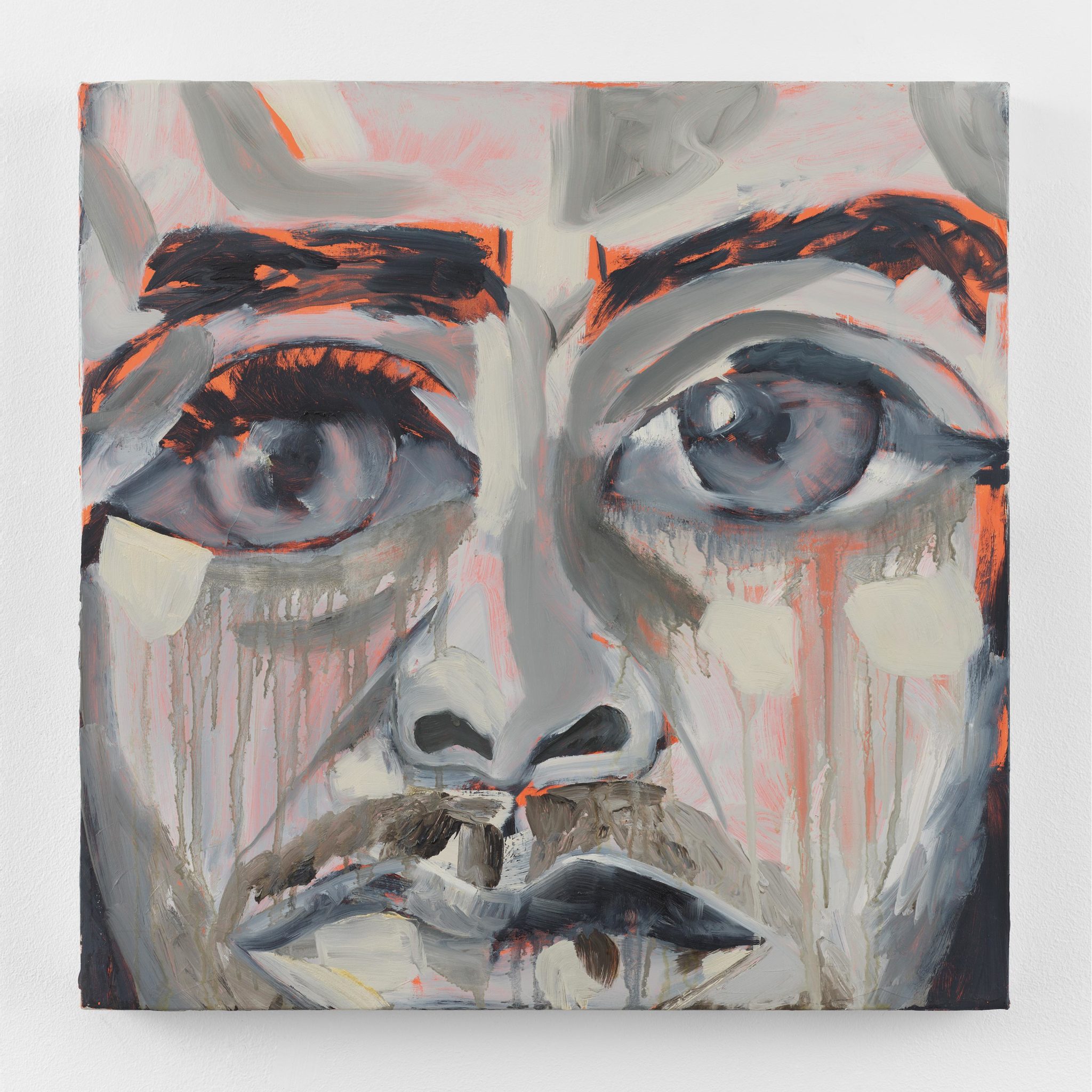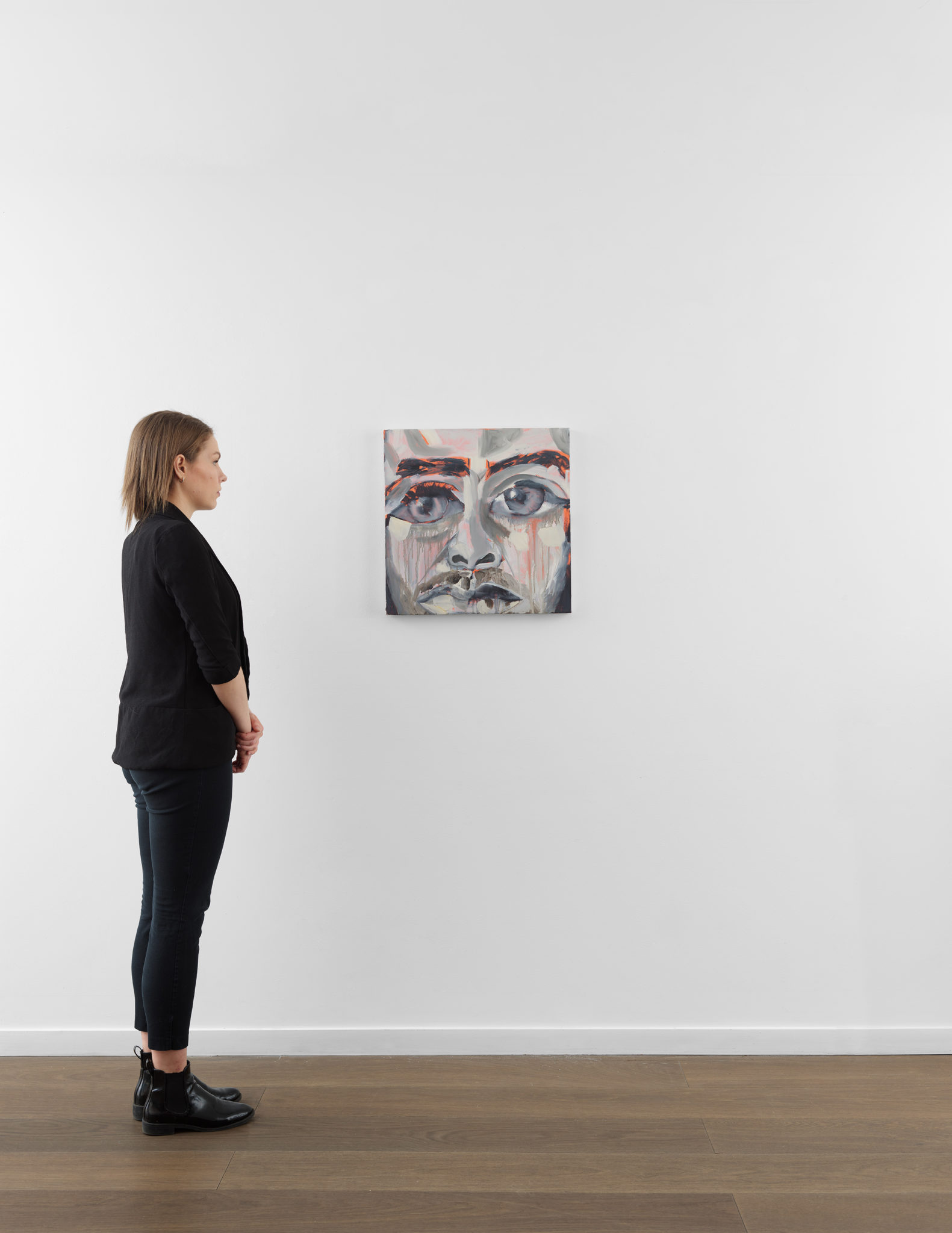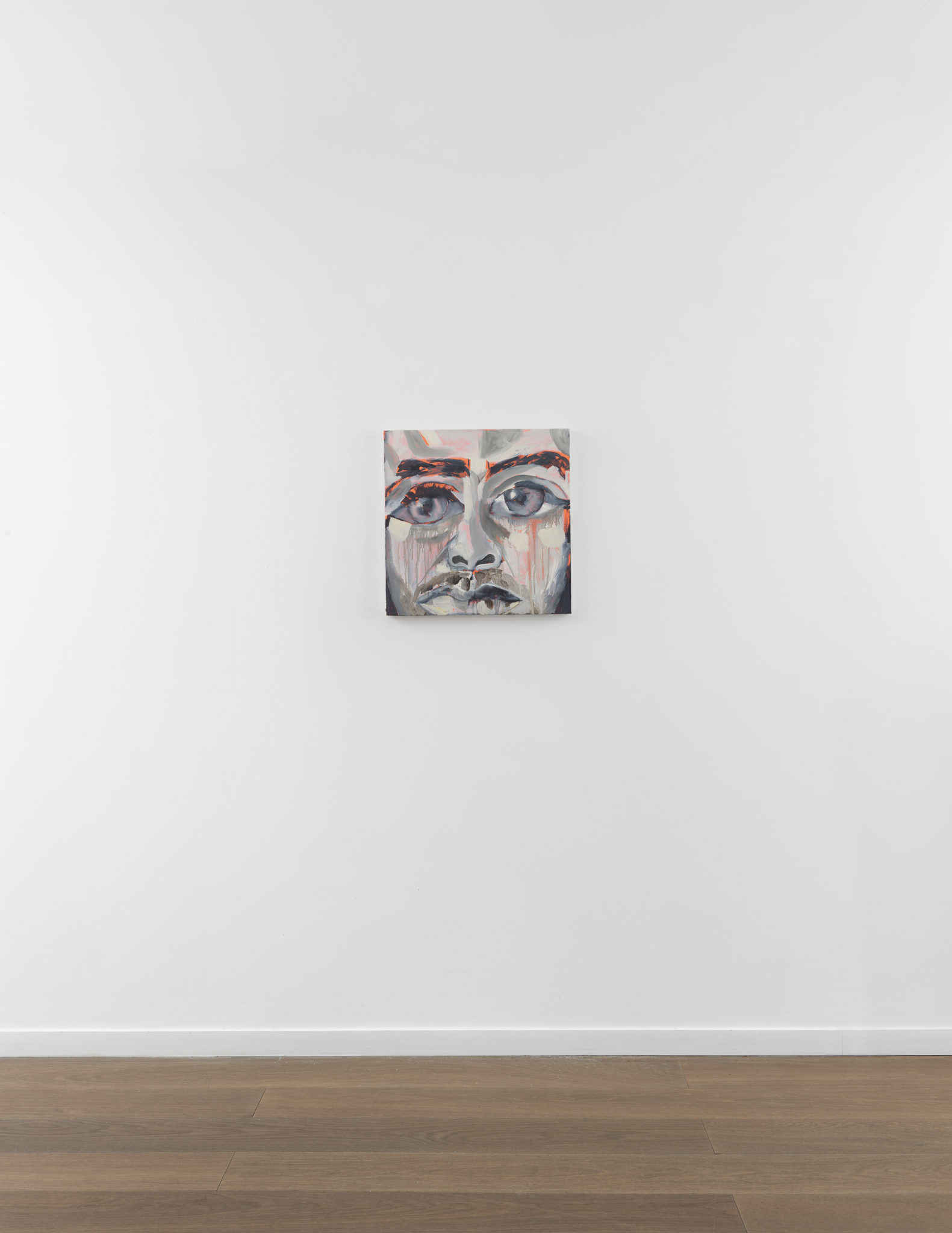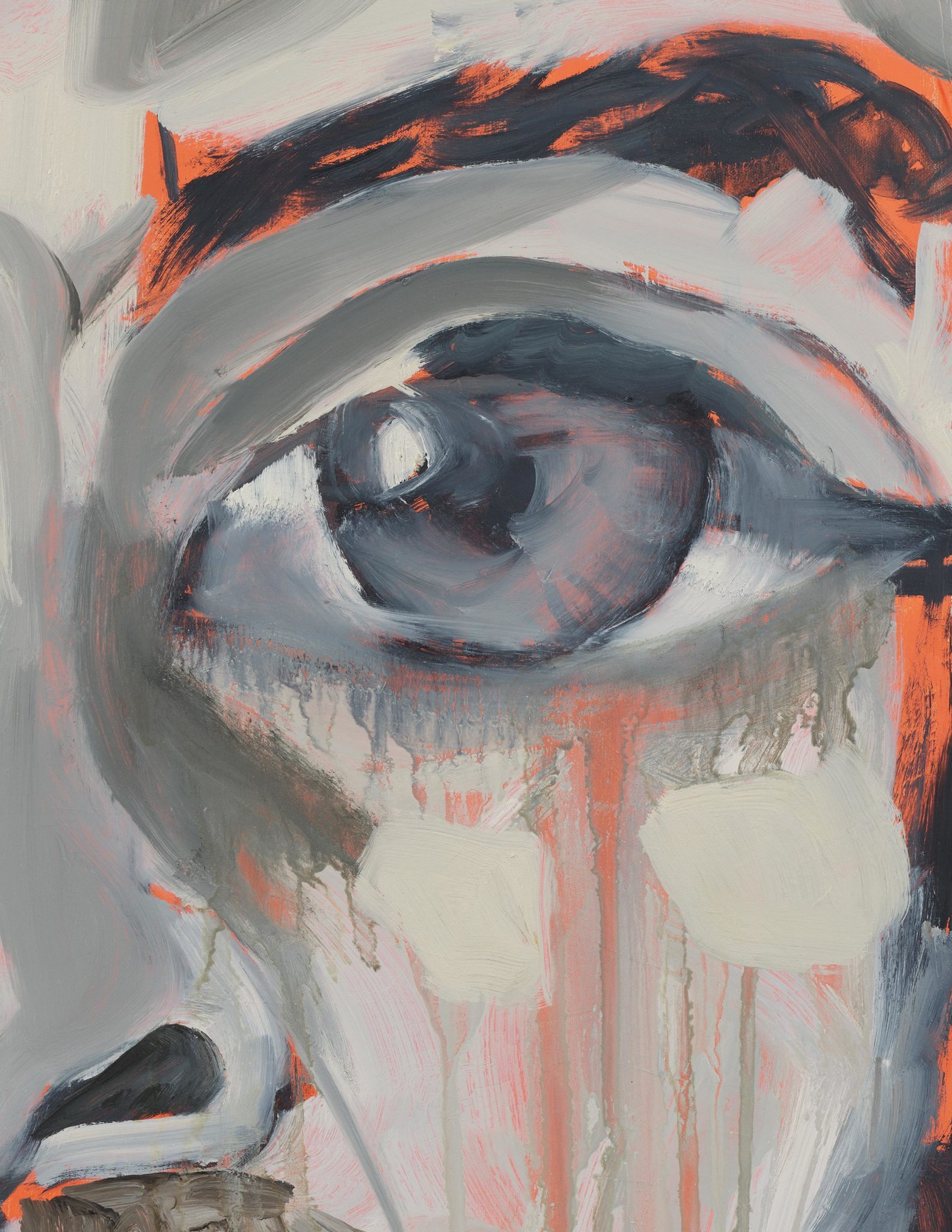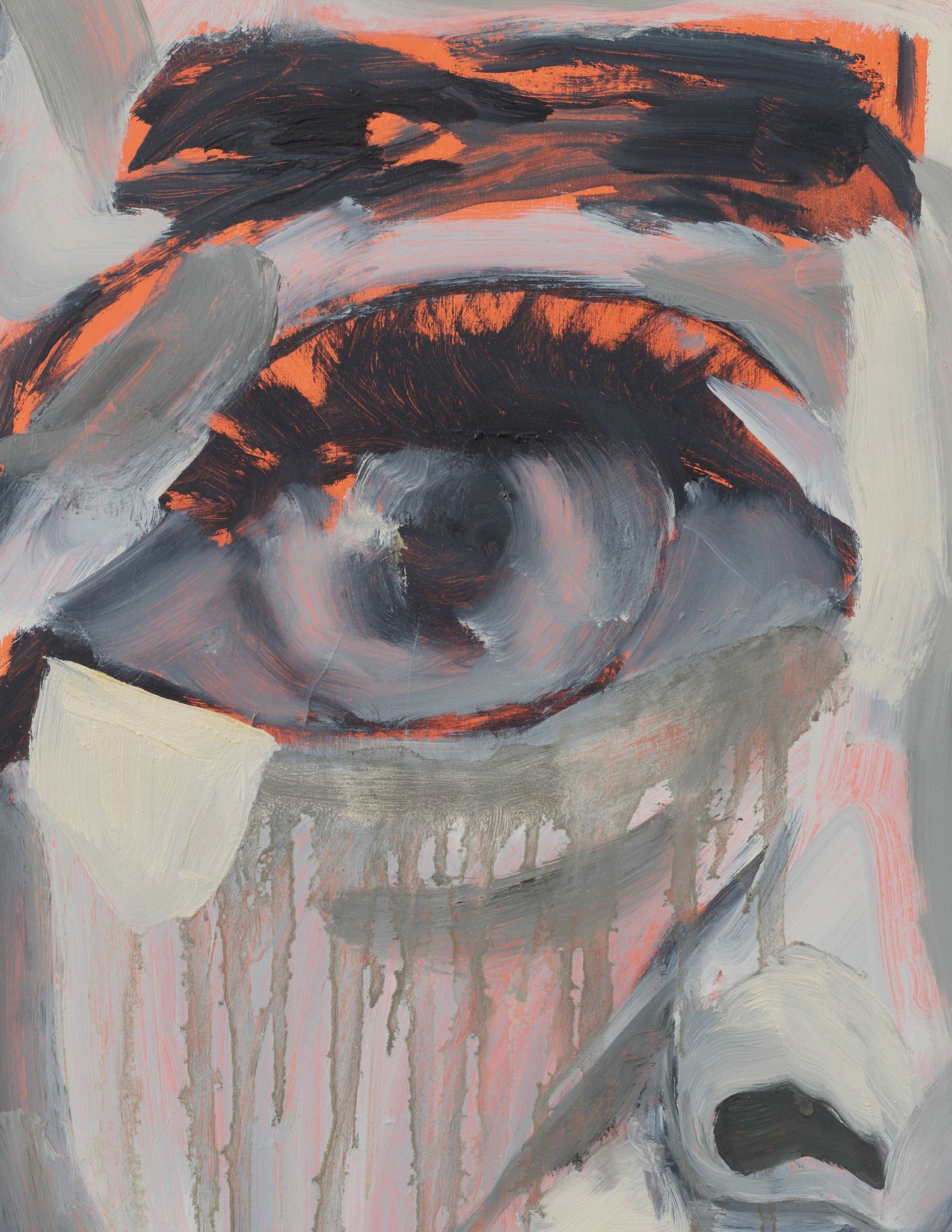Francesco Clemente
Grisaille Self-Portrait, 1998
Oil on canvas
20 x 20 inches (50.8 x 50.8 cm)
© Francesco Clemente Studio
Photo: Elisabeth Bernstein
The self-portrait for me is justified exactly by the idea that the ego re-emerges, continually new. For me, the idea of the self-portrait is tied to the repetition of the ego and the rebirth of the ego. It is the contrary of the mirror.
—Francesco Clemente, 1999
Francesco Clemente’s self-portraits have been a staple of the artist’s output since his first drawings of the early ’70s. In 1997, he began a series of self-portraits in grisaille—in stark contrast to other portraits completed in the ’90s in a brighter palette. These restrictions allowed Clemente to pare down his compositions to a skillful play of light and shadow. In the present work, the artist looks straight at the viewer with a penetrating gaze, exemplifying the dual sense of confrontation and invitation that philosopher Emmanuel Levinas has described as fundamental in our encounters with strangers. A bright orange accents the multitudinous greys which have been applied with diluted washes in a final layer. Streaming down the canvas, the warm color gives the impression of tears issuing from the large, unwavering eyes.
Several works from the Grisaille Self-Portrait series were featured prominently in Clemente’s seminal retrospective at the Solomon R. Guggenheim Museum, New York, in 2000. In the late ’90s, they indicated a new direction for the artist; one that replaced the usual objects, emblems, and figures that populated his canvases with a mirror-like moment of psychological introspection. As such, the works appear to be less about communicating identity through symbolism than fracturing the very idea of self by questioning the boundaries of its representation. Art historian Craig Houser stated of these works, “It is as if Clemente internalized the peculiarities of his earlier work and ended up communicating them, with unusual intensity and focus, through the eyes.”

